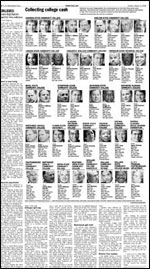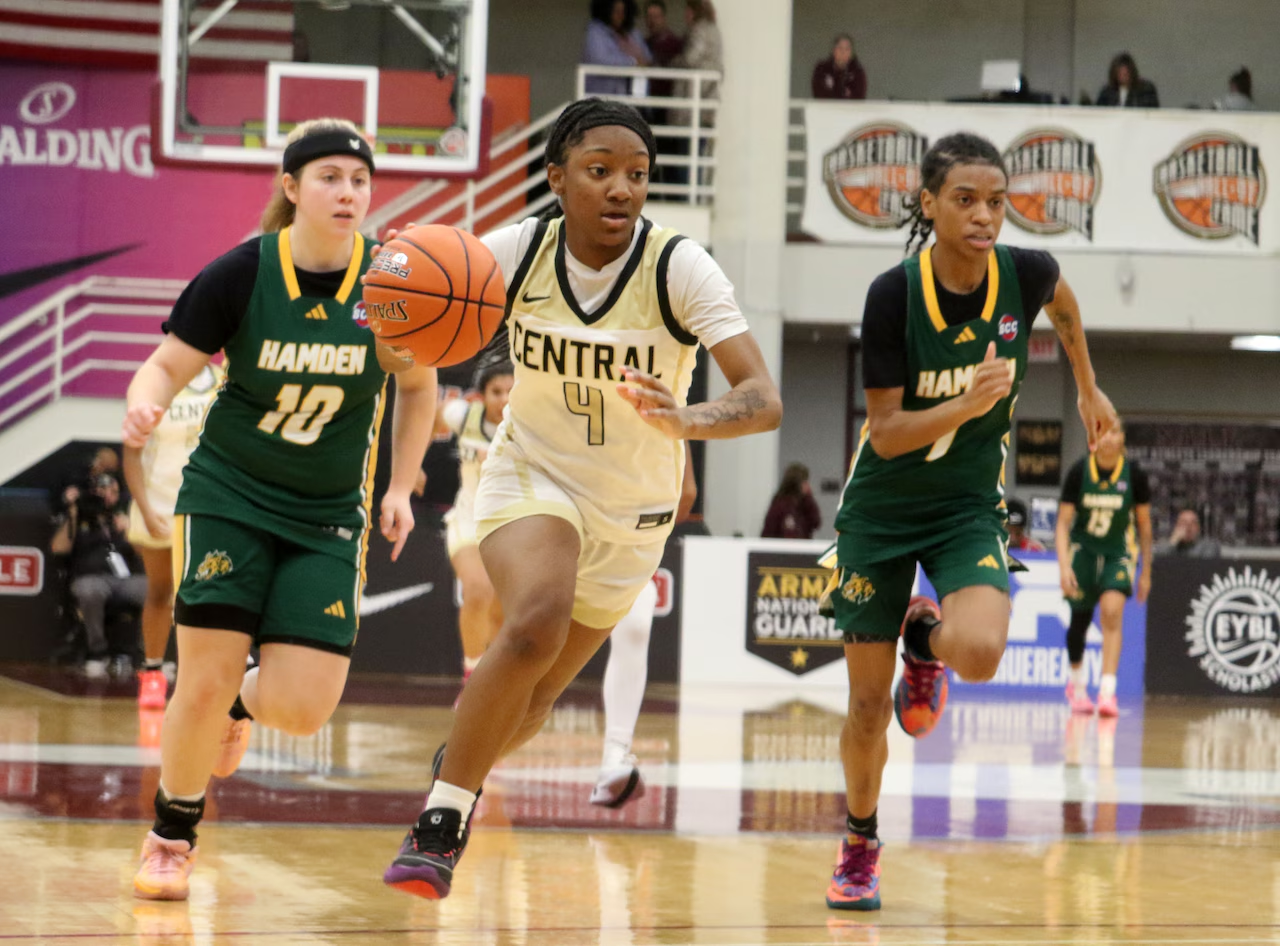I remember the whispers in our newsroom wondering why I, a state reporter, had become “The Alabama Fire College” reporter in early 2006. Why were we writing these stories, uncovering these small-town deals and contracts at the little firefighter training school in Tuscaloosa? The question really was, put less politely, “Who cares?”
The answer now seems obvious. We began the reporting at a small, local college campus and followed the path into a broader, statewide web of corruption and cronyism in Alabama’s two-year college system. Two years after the reporting began, the community college system cast from former Governor George Wallace’s populism and politics continues to undergo a massive overhaul—a new chancellor, new college presidents, new policies prohibiting jobs for politicians. A resulting federal criminal investigation has reached by now into nearly all of the system’s 26 colleges and training schools, with prosecutors pocketing several guilty pleas already and three convictions in early trials.
RELATED WEB LINK
Read these articles, archived on The Birmingham News Web site »
–blog.al.com/twoyear/The stories—passing more than 175 since those fire college articles—are the stuff of basic, daily journalism practiced by hundreds of newspapers every day. They represent the ability of a newspaper to dig deeply into local matters, following the threads beyond those boundaries close to home and pursuing the story into every corner, even as others question why.
Local Reporting’s Purpose
American journalism has a long history of this type of reporting. Movies are made about it. History is changed by it. It was, after all, local reporting that uncovered the burglary of the Watergate hotel more than three decades ago, and the success of that work was the product of committed, sustained reporting over time despite powerful political opposition. It wasn’t always the political partisans raising the most opposition to that effort. At times, the very White House press corps who missed the Watergate story seemed determined to dismiss it.
Local reporting by newspapers, more than any other journalistic offering, has survived it all—the advent of radio, television, cable and even the Internet. It’s what we do best. And it’s what readers love most. But it is becoming increasingly more difficult to hear the soft, steady voices of daily newspapers among what has become a shouting crowd growing in today’s digital media. Think about it: In an age when just about anyone can write a “news story” or produce a “news clip” online, it becomes more difficult to separate propaganda from proof. And isn’t that just what those who would hope to neutralize true, independent journalism would want, the ability to present their own agenda disguised as “the real truth?”
This is exactly why strong, local reporting—and devoting the resources necessary to do it—is so important to daily newspapers. No other news organization can spend the time collecting thousands of pages of contract, payroll and financial records from Alabama’s community colleges, spread across hundreds of miles at dozens of campuses. In this case, local reporting was defined by The Birmingham News’s interest in a statewide system of colleges. National newspapers wouldn’t spend the months necessary to report this issue, and smaller, rural papers don’t have the resources and the political cover necessary to pursue what surely would upset their hometown’s largest employers and the political leaders they employ.
I didn’t set out at the beginning of my work on the two-year college series to change anything, to right any wrongs. We just decided, as a newspaper, that an area of the state’s government needed more attention than we were able to provide in the past. It was one of those government agencies, Alabama’s Department of Postsecondary Education, which fell through the cracks of our reporting routine. Reporters assigned to it had to juggle several other beat responsibilities, so they could never give it the time they would want. But the purpose of local reporting is to cover what others can’t, won’t or haven’t. And we decided this was an area that warranted more attention.
Digging to Find the Story
I worked for months without a byline in the paper, researching the college system and compiling data, when I could get it, on payroll and contracts across the state. I met with system employees, management, contractors, anyone who would offer insight and background into this largely ignored network of campuses that spent more than half a billion dollars each year. It was the money, the amount of it, which startled me as I began learning about this system. I know enough about government reporting to know that where there is a huge pile of money there likely is a story. But that basic instinct isn’t enough to write about. And without time to dig deeply into this uncovered treasure, it would continue to be unknown to the public and untapped for news.
That is the value of that type of local, intense reporting. I tried to make that point recently at a meeting in Washington, D.C., at a gathering of newspaper editors from across the country. But my message couldn’t penetrate the discussions among them about the cuts in staff, the drops in circulation, the loss of revenue at their papers. How can you afford this type of reporting? My response is, how can you afford not to do it?
First, I reminded them, it’s what readers expect and love. I’ve been a reporter for 22 years and, at no point, with no other story, have I received more reader feedback. It was really accidental, but seemingly brilliant, the way we ultimately published the articles in the two-year college series. We had every intent to package related articles in a traditional Sunday presentation, complete with photographs, graphics, pullout boxes, the works. But erupting daily news events, resulting from our initial articles and efforts by the college system’s leadership to sabotage some of our enterprise, meant we had to publish material as fast as we could to stay ahead of our own story. Readers, however, gave us far more credit, thinking we intentionally structured our work as an ongoing serial for release on a Tuesday, a Thursday, maybe a Monday, just to keep them guessing. “It’s like a novel,” one reader told me. “I can’t wait to pick up the paper the next day to see what’s coming.”
Of course, I played along. I didn’t explain how we intended to make the sausage. I just liked the fact they enjoyed it. But isn’t this proof that readers devour this type of material? Each article is pretty much a traditional news story, not hard to get your head around as a reader. But each is rich with news, details, the type of things that people call their friends about, wondering if they’ve seen the latest bit. Our genuine interest to do our journalism job better turned out to be just what the reader wanted, and it made us relevant, a must-read. How can we not afford to do this?
The second message I tried to convey was this: Isn’t this what we’re supposed to do as newspapers? Something about comforting the afflicted and afflicting the comfortable, right? Newspapers have one place among the increasingly crowding media as the ever-vigilant watchdog, and it’s what we do best for local audiences. Broadcasters can’t do it; there’s no video. And radio can’t do it; there’s no time. Bloggers won’t do it; there’s no agenda. And national media can’t do it; there’s no interest.
That leaves us, with a very significant niche. We continued reporting and writing this story this year. Truth is the Pulitzer folks gave me a $10,000 check, but they also gave me the argument to make to my bosses about why this matters. We can’t drop this, as we often have to do, because we believe the next bright, shiny light is where we should head.
This year’s work on this story might be more significant, frankly. I have focused on legislators working in the system and the connection the two-year colleges have to the state’s politically powerful. As a dear friend and former boss of mine who died a few years back used to say, “Now you’re meddlin’.” The result has been not so much praising us for our work, as was the case last year from elected officials and their friends who patted us on the head with that “attaboy” compliment. Now, as a result of more scrutiny into the system’s political infrastructure, we’re part of a conspiracy, they like to say, to undermine the electoral process, to help unseat those who couldn’t be beaten at the ballot box.
The partisans are on attack, and their bloggers are taking aim. But all of that is to be expected. Just like the small-town paper that dares to write about the mayor’s wife receiving an interior design contract from the town council, the News is under fire for raising questions about politics and patronage and for writing about it. Unlike the small paper, though, the News can afford to take the hit and has maintained its commitment to cover this subject regardless of the politics that erupts around it.
How can we afford not to? This is, after all, our community. We cannot allow political campaigns to intimidate us. And we cannot allow those campaigns to discourage us. We just need to continue doing the job we set out to do, with the same motivations to do good journalism that inspired us to do the work in the first place. That sense of community, of purpose, of relevance, of readers is the deciding factor that distinguishes newspapers from other media. The commitment to local reporting is how we prove it.
Brett J. Blackledge is a general assignment and special projects reporter at The Birmingham News. His reporting won the 2007 Pulitzer Prize for Investigative Reporting, with the judges citing “his exposure of cronyism and corruption in the state’s two-year college system, resulting in the dismissal of the chancellor and other correction action.”
The answer now seems obvious. We began the reporting at a small, local college campus and followed the path into a broader, statewide web of corruption and cronyism in Alabama’s two-year college system. Two years after the reporting began, the community college system cast from former Governor George Wallace’s populism and politics continues to undergo a massive overhaul—a new chancellor, new college presidents, new policies prohibiting jobs for politicians. A resulting federal criminal investigation has reached by now into nearly all of the system’s 26 colleges and training schools, with prosecutors pocketing several guilty pleas already and three convictions in early trials.
RELATED WEB LINK
Read these articles, archived on The Birmingham News Web site »
–blog.al.com/twoyear/The stories—passing more than 175 since those fire college articles—are the stuff of basic, daily journalism practiced by hundreds of newspapers every day. They represent the ability of a newspaper to dig deeply into local matters, following the threads beyond those boundaries close to home and pursuing the story into every corner, even as others question why.
Local Reporting’s Purpose
American journalism has a long history of this type of reporting. Movies are made about it. History is changed by it. It was, after all, local reporting that uncovered the burglary of the Watergate hotel more than three decades ago, and the success of that work was the product of committed, sustained reporting over time despite powerful political opposition. It wasn’t always the political partisans raising the most opposition to that effort. At times, the very White House press corps who missed the Watergate story seemed determined to dismiss it.
Local reporting by newspapers, more than any other journalistic offering, has survived it all—the advent of radio, television, cable and even the Internet. It’s what we do best. And it’s what readers love most. But it is becoming increasingly more difficult to hear the soft, steady voices of daily newspapers among what has become a shouting crowd growing in today’s digital media. Think about it: In an age when just about anyone can write a “news story” or produce a “news clip” online, it becomes more difficult to separate propaganda from proof. And isn’t that just what those who would hope to neutralize true, independent journalism would want, the ability to present their own agenda disguised as “the real truth?”
This is exactly why strong, local reporting—and devoting the resources necessary to do it—is so important to daily newspapers. No other news organization can spend the time collecting thousands of pages of contract, payroll and financial records from Alabama’s community colleges, spread across hundreds of miles at dozens of campuses. In this case, local reporting was defined by The Birmingham News’s interest in a statewide system of colleges. National newspapers wouldn’t spend the months necessary to report this issue, and smaller, rural papers don’t have the resources and the political cover necessary to pursue what surely would upset their hometown’s largest employers and the political leaders they employ.
I didn’t set out at the beginning of my work on the two-year college series to change anything, to right any wrongs. We just decided, as a newspaper, that an area of the state’s government needed more attention than we were able to provide in the past. It was one of those government agencies, Alabama’s Department of Postsecondary Education, which fell through the cracks of our reporting routine. Reporters assigned to it had to juggle several other beat responsibilities, so they could never give it the time they would want. But the purpose of local reporting is to cover what others can’t, won’t or haven’t. And we decided this was an area that warranted more attention.
Digging to Find the Story
I worked for months without a byline in the paper, researching the college system and compiling data, when I could get it, on payroll and contracts across the state. I met with system employees, management, contractors, anyone who would offer insight and background into this largely ignored network of campuses that spent more than half a billion dollars each year. It was the money, the amount of it, which startled me as I began learning about this system. I know enough about government reporting to know that where there is a huge pile of money there likely is a story. But that basic instinct isn’t enough to write about. And without time to dig deeply into this uncovered treasure, it would continue to be unknown to the public and untapped for news.
That is the value of that type of local, intense reporting. I tried to make that point recently at a meeting in Washington, D.C., at a gathering of newspaper editors from across the country. But my message couldn’t penetrate the discussions among them about the cuts in staff, the drops in circulation, the loss of revenue at their papers. How can you afford this type of reporting? My response is, how can you afford not to do it?
First, I reminded them, it’s what readers expect and love. I’ve been a reporter for 22 years and, at no point, with no other story, have I received more reader feedback. It was really accidental, but seemingly brilliant, the way we ultimately published the articles in the two-year college series. We had every intent to package related articles in a traditional Sunday presentation, complete with photographs, graphics, pullout boxes, the works. But erupting daily news events, resulting from our initial articles and efforts by the college system’s leadership to sabotage some of our enterprise, meant we had to publish material as fast as we could to stay ahead of our own story. Readers, however, gave us far more credit, thinking we intentionally structured our work as an ongoing serial for release on a Tuesday, a Thursday, maybe a Monday, just to keep them guessing. “It’s like a novel,” one reader told me. “I can’t wait to pick up the paper the next day to see what’s coming.”
Of course, I played along. I didn’t explain how we intended to make the sausage. I just liked the fact they enjoyed it. But isn’t this proof that readers devour this type of material? Each article is pretty much a traditional news story, not hard to get your head around as a reader. But each is rich with news, details, the type of things that people call their friends about, wondering if they’ve seen the latest bit. Our genuine interest to do our journalism job better turned out to be just what the reader wanted, and it made us relevant, a must-read. How can we not afford to do this?
The second message I tried to convey was this: Isn’t this what we’re supposed to do as newspapers? Something about comforting the afflicted and afflicting the comfortable, right? Newspapers have one place among the increasingly crowding media as the ever-vigilant watchdog, and it’s what we do best for local audiences. Broadcasters can’t do it; there’s no video. And radio can’t do it; there’s no time. Bloggers won’t do it; there’s no agenda. And national media can’t do it; there’s no interest.
That leaves us, with a very significant niche. We continued reporting and writing this story this year. Truth is the Pulitzer folks gave me a $10,000 check, but they also gave me the argument to make to my bosses about why this matters. We can’t drop this, as we often have to do, because we believe the next bright, shiny light is where we should head.
This year’s work on this story might be more significant, frankly. I have focused on legislators working in the system and the connection the two-year colleges have to the state’s politically powerful. As a dear friend and former boss of mine who died a few years back used to say, “Now you’re meddlin’.” The result has been not so much praising us for our work, as was the case last year from elected officials and their friends who patted us on the head with that “attaboy” compliment. Now, as a result of more scrutiny into the system’s political infrastructure, we’re part of a conspiracy, they like to say, to undermine the electoral process, to help unseat those who couldn’t be beaten at the ballot box.
The partisans are on attack, and their bloggers are taking aim. But all of that is to be expected. Just like the small-town paper that dares to write about the mayor’s wife receiving an interior design contract from the town council, the News is under fire for raising questions about politics and patronage and for writing about it. Unlike the small paper, though, the News can afford to take the hit and has maintained its commitment to cover this subject regardless of the politics that erupts around it.
How can we afford not to? This is, after all, our community. We cannot allow political campaigns to intimidate us. And we cannot allow those campaigns to discourage us. We just need to continue doing the job we set out to do, with the same motivations to do good journalism that inspired us to do the work in the first place. That sense of community, of purpose, of relevance, of readers is the deciding factor that distinguishes newspapers from other media. The commitment to local reporting is how we prove it.
Brett J. Blackledge is a general assignment and special projects reporter at The Birmingham News. His reporting won the 2007 Pulitzer Prize for Investigative Reporting, with the judges citing “his exposure of cronyism and corruption in the state’s two-year college system, resulting in the dismissal of the chancellor and other correction action.”





